While noted for their historical charm and timekeeping abilities, some of Montreal’s clocks are reputed to be haunted. Most of Montreal’s haunted clocks are located on St. James Street, an area associated with the extreme desecration of French colonial cemeteries by various financial corporations.
Welcome to the eighty-ninth installment of the Haunted Montreal Blog!
With over 500 documented ghost stories, Montreal is easily the most haunted city in Canada, if not all of North America. Haunted Montreal dedicates itself to researching these paranormal tales, and the Haunted Montreal Blog unveils a newly researched Montreal ghost story on the 13th of every month!
This service is free and you can sign up to our mailing list (top, right-hand corner for desktops and at the bottom for mobile devices) if you wish to receive it every month on the 13th! The blog is published in both English and French!
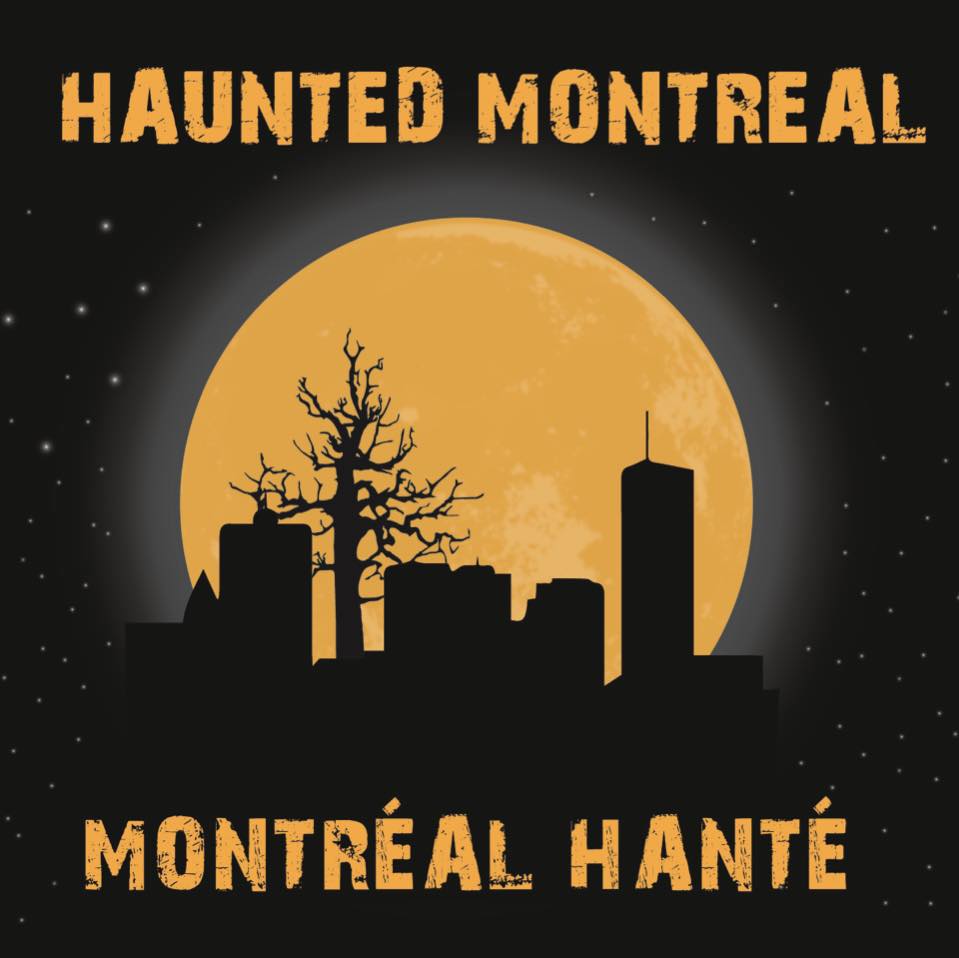
Haunted Montreal is in our winter mode and all of our public haunted experiences are now indoors!
Our Haunted Pub Crawl is offered every Sunday at 3 pm in English. For tours in French, these happen on the last Sunday of every month at 4 pm.
Private tours for all of our experiences (including outdoor tours) can be booked at any time based on the availability of our actors. Clients can request any date, time, language and operating tour. These tours start at $190 for small groups of up to 7 people.

Email info@hauntedmontreal.com to book a private tour!
We’ve just launched our newest haunted experience: Travelling Ghost Storyteller. Find out more in the Company News section.
Our Virtual Ghost Tour is also available on demand!
Want to give the gift of a haunted experience?
You can now order a Haunted Montreal Gift Certificate through our website. They are redeemable via Eventbrite for any of our in-person or virtual experiences. There is no expiration date.
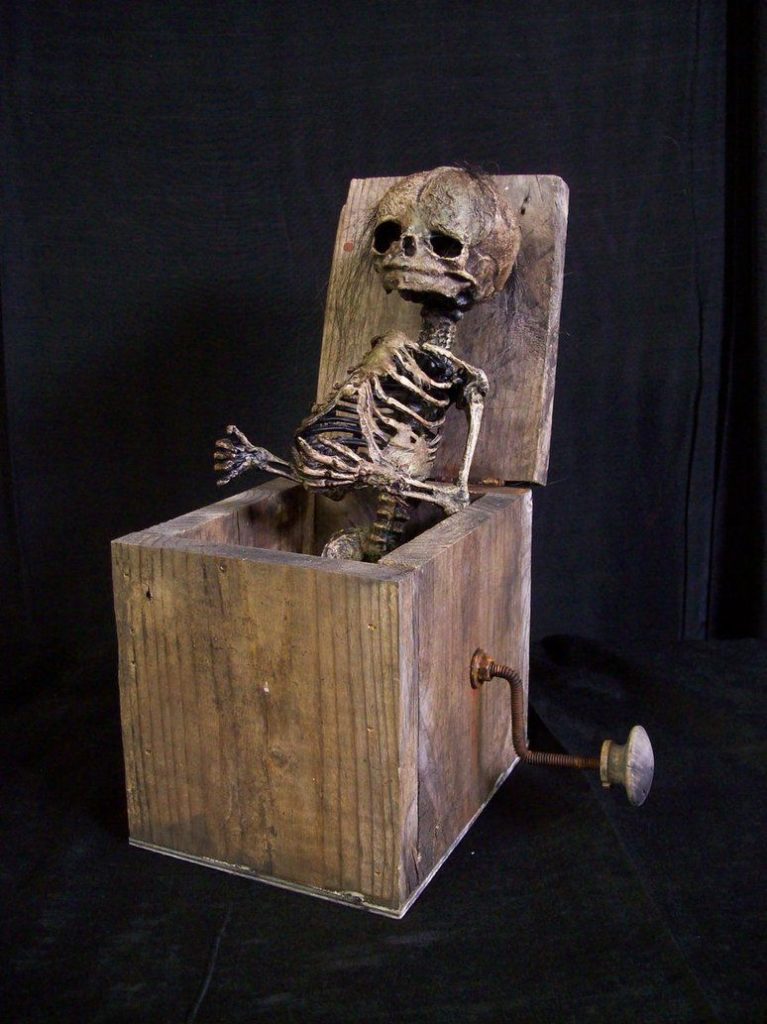
Lastly, we have an online store for those interested in Haunted Montreal merchandise. More details are below in our Company News section!
This month we examine Place Viger, a multi-use complex that was born out of the once-luxurious Viger Hotel and its now defunct adjoining train station. According to one tourist review, the site has a negative vibe and is haunted.
Haunted Research
A majestic castle-like structure sits proudly on the north-east corner of the Old Montreal district.
The beautiful Place Viger was conceived as both a grandiose hotel and railway station serving what was once central Montreal. Constructed in 1898, Place Viger was designed by architect Bruce Price for the Canadian Pacific Railway.
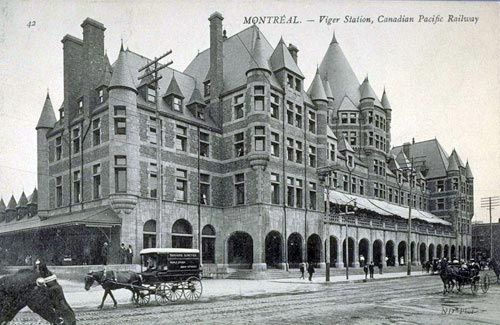
Price is famous for designing other haunted hotels, such as the original Banff Springs in Alberta and the Chateau Frontenac in Quebec City.
Built with Montreal gray stone and orange brick from Scotland, Place Viger stands out with its “Châteaux de la Loire” style, characterized by its numerous pepperbox corner turrets, pronounced conical roof and distinguished copper elements.
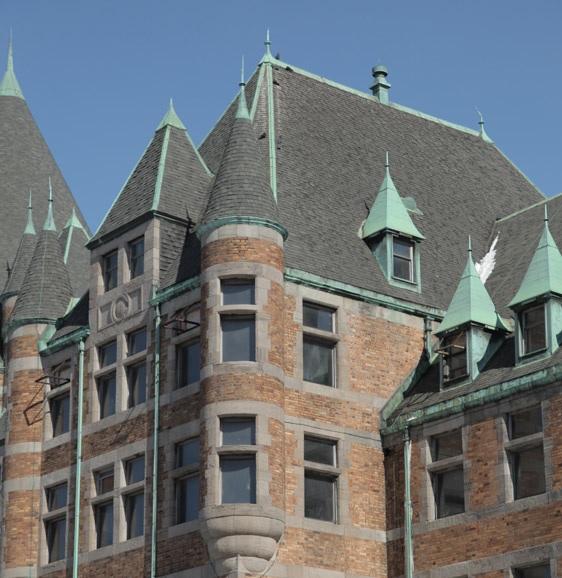
Created to replace Dalhousie Station, which became too small due to an increase in rail traffic, Place Viger was built near what was then the central part of Montreal. Located in proximity to the financial district, City Hall, the port and the courthouse, the complex housed the railway station in its lower levels and a luxurious hotel on the upper floors.
Place Viger also enjoyed an enviable setting right beside the beautiful Viger Square, the first public garden in Canadian history.
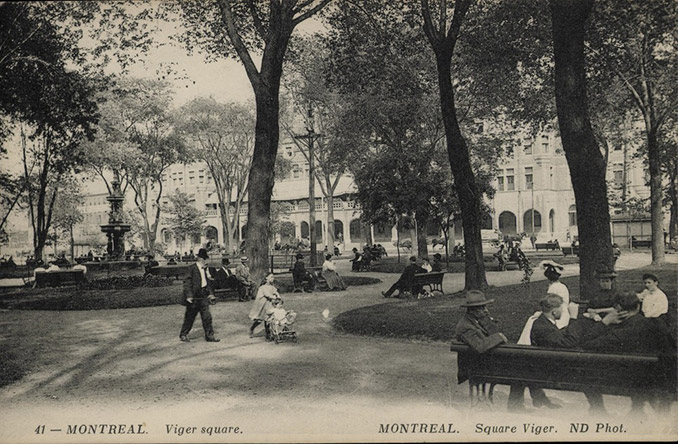
The location allowed both railway travellers and hotel guests to stroll along the bucolic pathways and fountains.
The trains ran south from Viger Station and to then the east along the water’s edge towards Quebec City and other destinations north of Montreal.
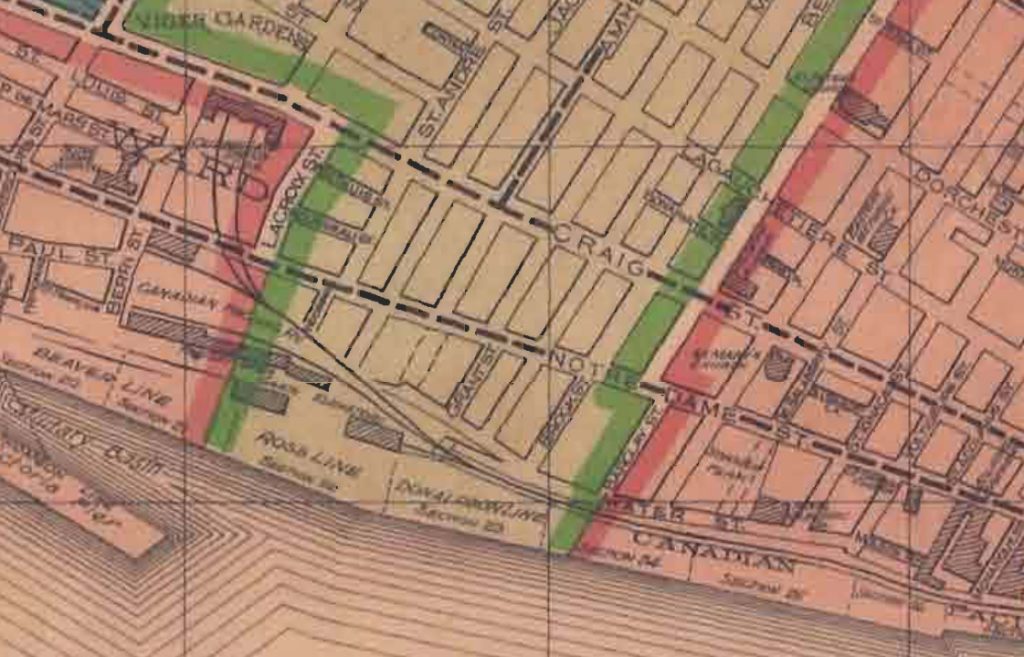
However, when Montreal’s commercial core began shifting to the north-west in the late 19th Century, Place Viger was put at a disadvantage. With the onset of the Great Depression in 1929, it signaled the demise of the hotel, which ultimately closed in 1935. Viger Station was soon shuttered in 1951 and the complex was sold to the City of Montreal. The luxurious interiors were gutted and transformed into banal office space, and the building was renamed Édifice Jacques-Viger.
For over 60 years, the magnificent Place Viger was used as office and storage space by the City of Montreal. To make matters worse, with the construction of the Ville-Marie Autoroute in the 1970s Viger Square and its magnificent Victorian gardens were destroyed. The replacement was a poorly-designed Brutalist park that featured mostly concrete.
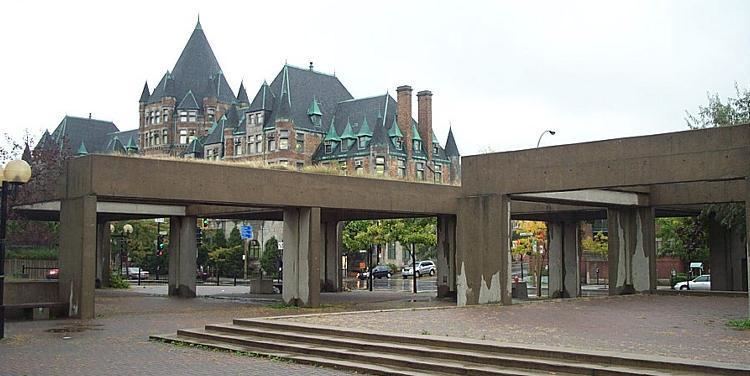
With the desolate new setting and inadequate maintenance, the castle-like building soon took on a forlorn appearance, including boarded up windows.
Place Viger was sold in 2005 to a developer who intended to convert the building to apartments and a new hotel. However, the company suffered financial difficulties and finally resold the property in 2012 to real estate developer Jesta along with other partners. In May 2014, the new owners announced a $250 million mixed-use redevelopment plan for the complex, residential and office space in addition to a new hotel. At the time of this writing in 2023, construction and renovations are well under way.
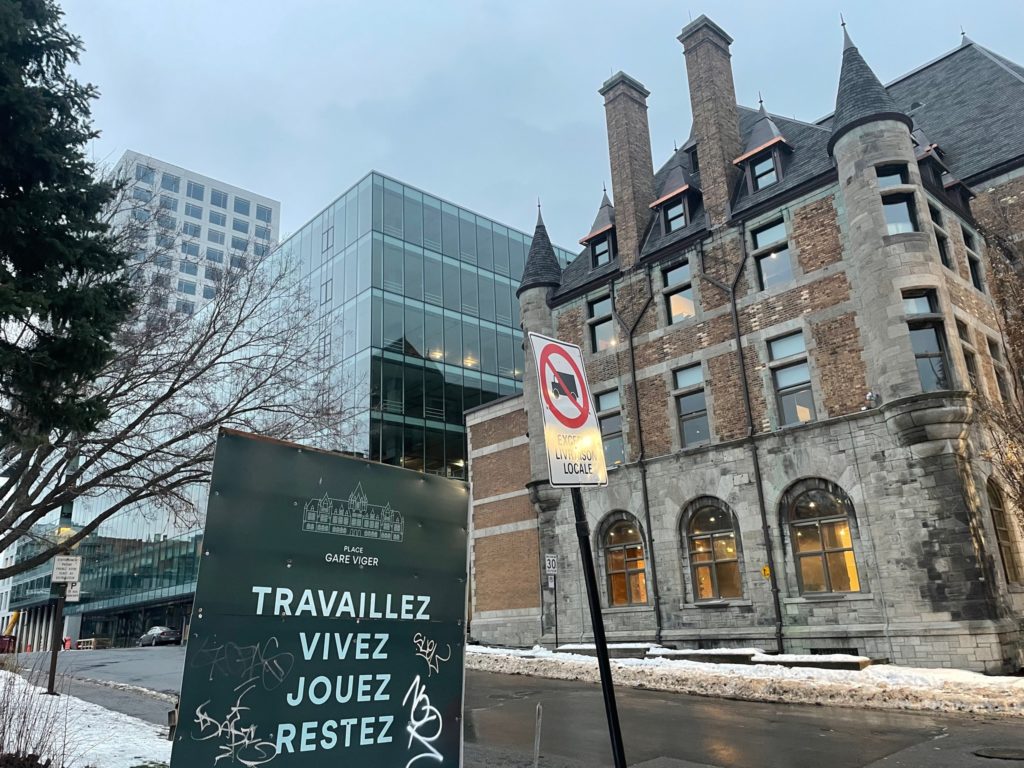
The City of Montreal is also giving Viger Square a much-needed makeover to correct the mistakes of the 1970s. The area is coming back to life after decades of neglect.
However, despite the new plans to revitalize Place Viger and its environs, there are constant rumors that the building is haunted. There is speculation that the ghostly activity is likely related to a string of tragedies in the hotel’s history.
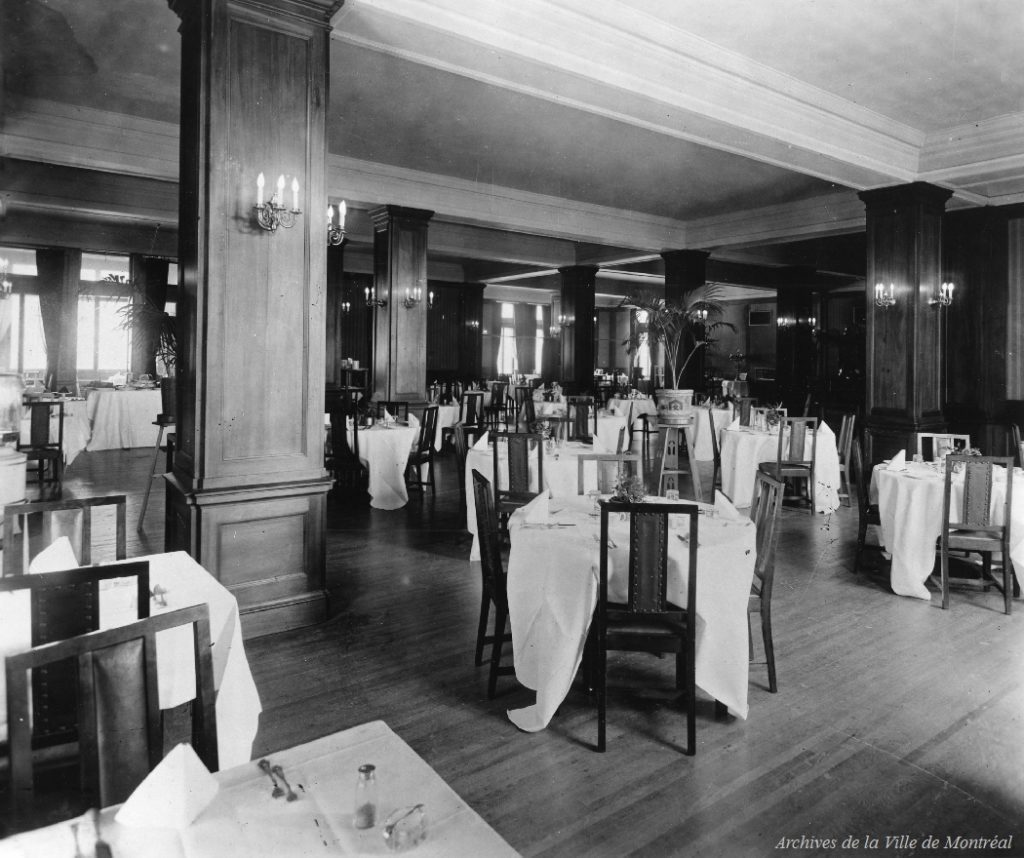
One report of a paranormal encounter at Place Viger dates back to July 31st, 2011. A tourist from Washington DC named Amy “Citizen of the World” C visited and then wrote a review on Yelp:
“We were on our way to the Latin Quarter via Rue Saint Denis and passing by Rue Sainte Antoine when the green rooftop and interesting architecture of the exterior of Place Viger caught my eye a block away. We were drawn to it by its aesthetics, but as we drew closer we noticed all the boarded up windows and construction permits on the doors.”
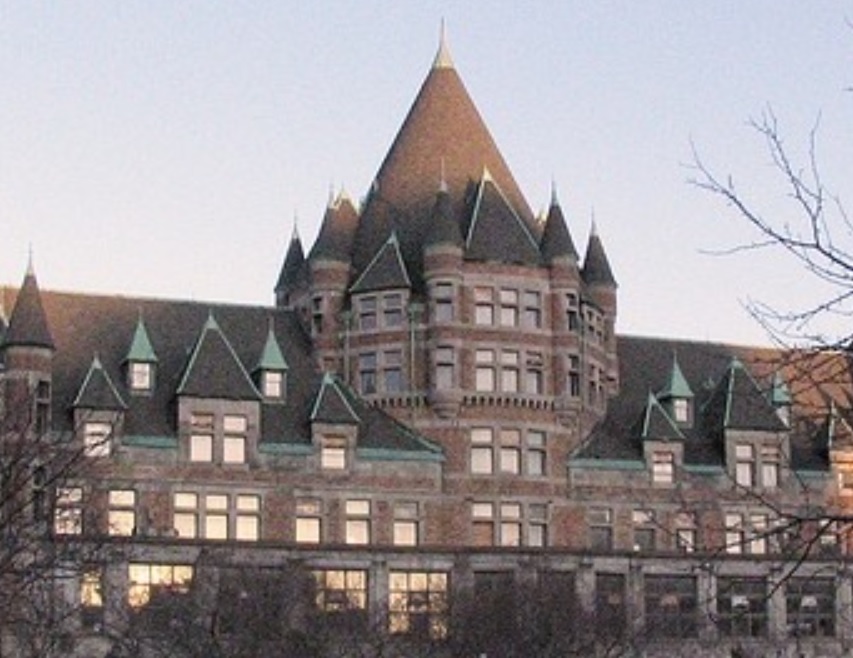
Amy added: “Appearances aside, I felt a very strong negative energy about the place. I immediately knew the place was haunted. I heard children crying for their mothers and the sadness engulfed me. I felt a tightness in my chest so I practically ran back across the street. On my way back, I noticed broken glass on the sidewalk near the front of Place Viger. It looked like shattered glass from a car accident. As soon as I was across the street, I felt a whole lot better.”
However, the broken glass that Amy had spotted was perhaps an omen of what was to come.
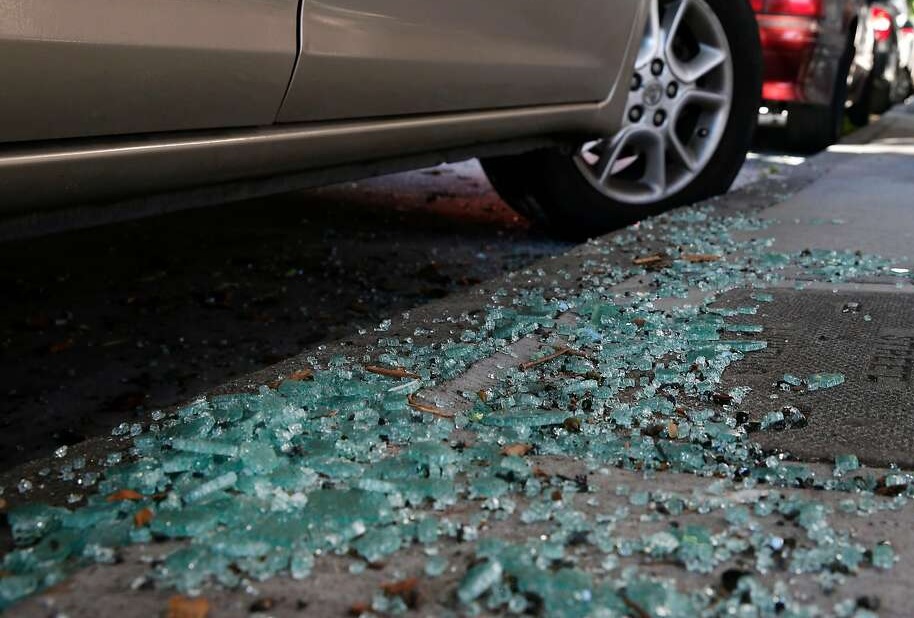
Indeed, Amy wrote: “All of sudden, a car collided into the front of another car as it turned onto the block. No one was hurt, but both cars were dented. The drivers pulled their cars over to the front of Place Viger.”
Amy concluded her review with a recommendation: “Ever since that experience, I keep thinking about Place Viger so I did some internet research and learned the history of it. Whether you believe in spirits or not, it’s worth a quick walk around the outside.”
Despite being very disturbed by her paranormal encounters, Amy gave four out of five stars to Place Viger in her online review.

There can be no denying that Place Viger has experienced some horrific events throughout its short history. Examples include a robbery, messy train accident and an unexpected gas explosion that sent about 100 people on a train quay flying into the air. Over 20 of them were left crippled.
Going back in time, the robbery occurred in the early hours of April 3rd, 1935. A man approached the ticket counter and passed a note to the clerk that demanded he put all of the money into an envelope. The thief had his hand in his pocket and it appeared as though he might have a revolver.

The clerk put $200 in an envelope and handed it over. The thief took the wad of cash, glanced around and then fled. Detectives were unable to find the culprit.
Next was the train accident, which happened in the evening of June 15th, 1913.
A railcar loaded with 80,000 gallons of coal tar broke away from a train in the Mile End Railyards. The errant railcar began rolling on its own down the slope towards the river. It soon was barreling down the escarpment and racing towards Viger Train Station.
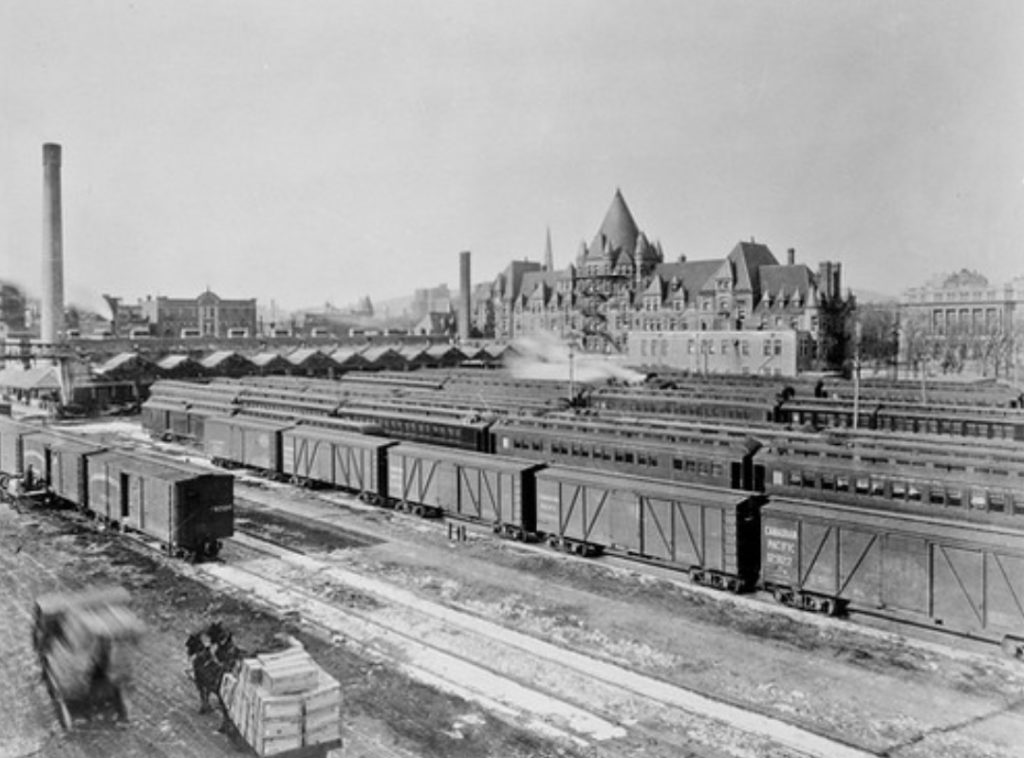
According to the Montreal Daily Witness, “The first obstacle it met was the buffer. Built of steel and heavy timber, the buffer appeared to be strong enough to stop it, but so great was the force with which the car travelled that steel and wood gave way before it. Jumping the metals, it forged its way across the concrete concourse, tearing up the stone work, and flung its weight, amounting to many tons, against the railway gates and the stone work of the waiting room.”
As the railcar slammed into the waiting room, it tipped over, spewing thousands of gallons of coal tar. The force was so great that the tarry mess filled the waiting room and splattered all the way to the ceiling. Three people were injured, one of them named Alfred Gadoury seriously. He was taken to Notre-Dame Hospital, covered in coal tar.
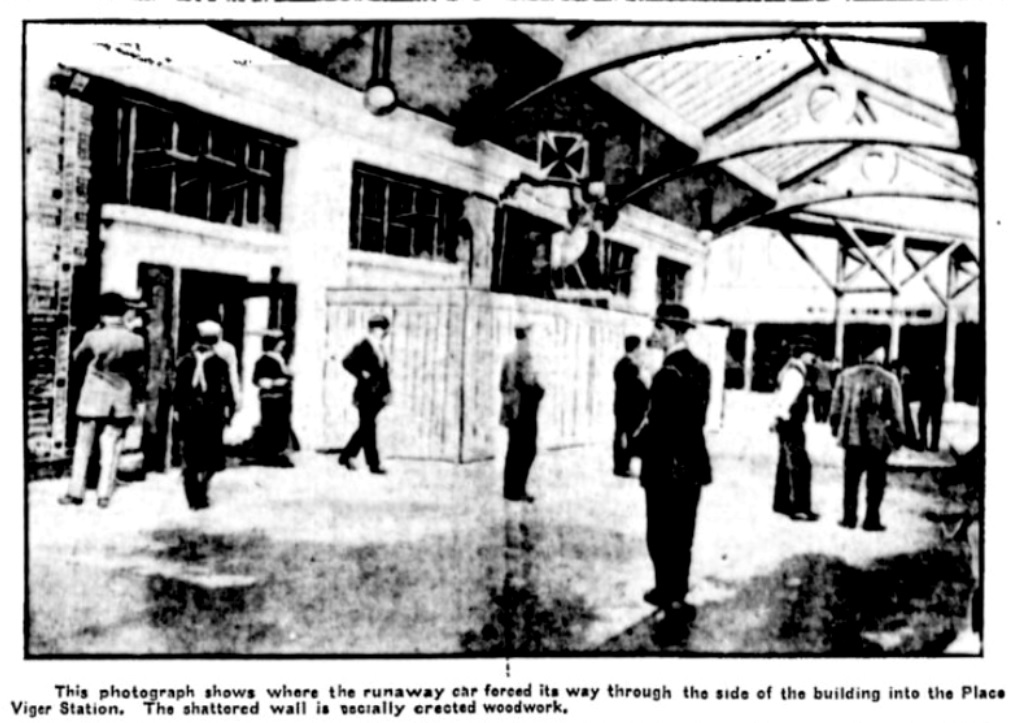
Finally, in this string of horrible episodes, a major tragedy struck Place Viger in 1909 on New Year’s Eve.
That Friday night, hundreds were gathered on a railway quay to bid farewell to friends and relatives who were departing for Quebec City to see loved ones on New Year’s Day.
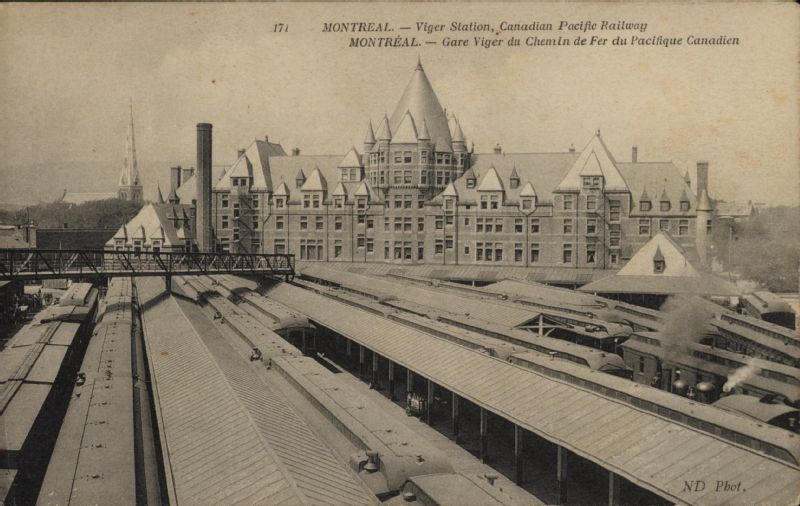
As the crowd waited for the train to depart, at 11:27 p.m. there was a massive explosion on the quay. In the fiery and apocalyptic scene, around 100 people were scattered into the air. They landed in a chaotic heap of broken bodies.
Amidst the screaming, moans of pain, and children crying for their parents, railway officials ran over to try to help the victims of the explosion. Among the piles of scattered people, they discovered that over twenty of them were seriously mangled.
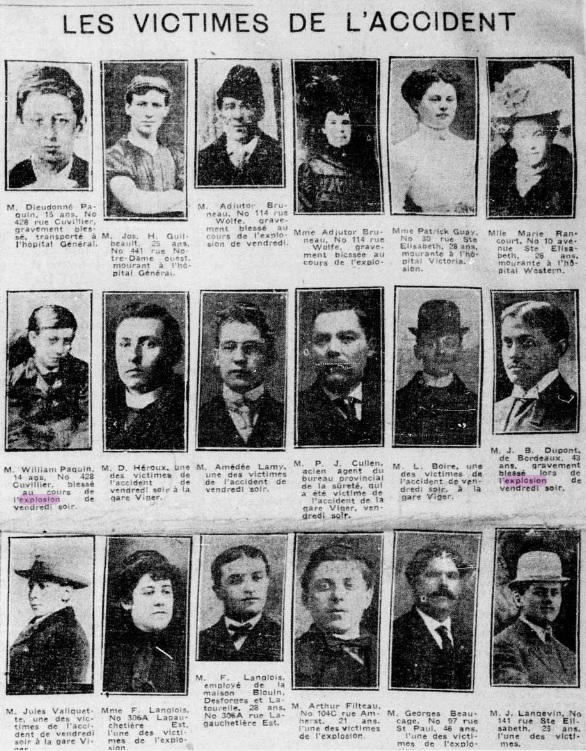
The railway quay they had been standing on was split open almost its entire length, revealing a burst pipe that was carrying “Pintsch” gas, which was used to light railway carriages at the time.
For over an hour, ambulances worked tirelessly to transport the injured to the various hospitals around the city. Many had broken bones and were in a state of nervous shock. The youngest victim was a 15 year-old boy named M. Diedonné Paquin. His body was twisted and mangled and the medics transported him to the Montreal General Hospital in a terrible condition.
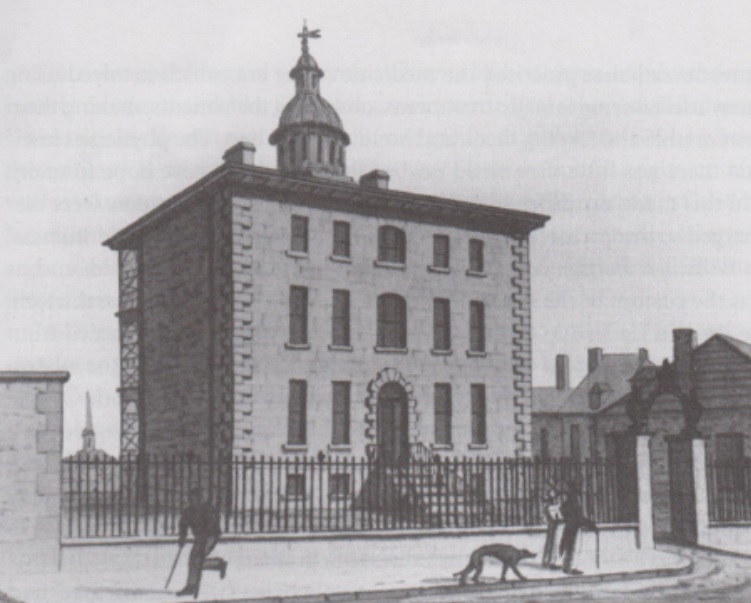
Another victim, Mme. Patrick Guay, 28, died of her injuries shortly after the explosion – at the Royal Victoria Hospital. Other deaths were to follow.
Captain Bellefleur, of the municipal police force, was on the station platform when the explosion occurred. He recalled that he couldn’t define the feeling of the blast and wondered if he was still alive. “I am not usually afraid,” he said, “and yet I must confess that fear kept me immobile for some time.”
Bellefleur’s colleague, Captain Bourgeois, had a very eerie memory. He recalled that nine years earlier – on the same date and at the exact same time – a Canadian Pacific train had beheaded a man just a few feet from where the explosion occurred.

Captain Bourgeois, who was on duty at Viger Station that night, picked up the victim’s head himself. It was found nearly two feet from the tracks. The death was mysterious, according to the captain, who said “we never knew if this was a suicide or an accident”.
Early Saturday morning, an inquiry was held by Mr. McNicoll, vice-president of Canadian Pacific. Experts made a meticulous examination of the gas pipe that had exploded and concluded that the break was caused by cold temperatures. The gas was brought from a main tank through a half-inch underground pipe below the platform. The pressure was approximately 150 pounds per square inch.
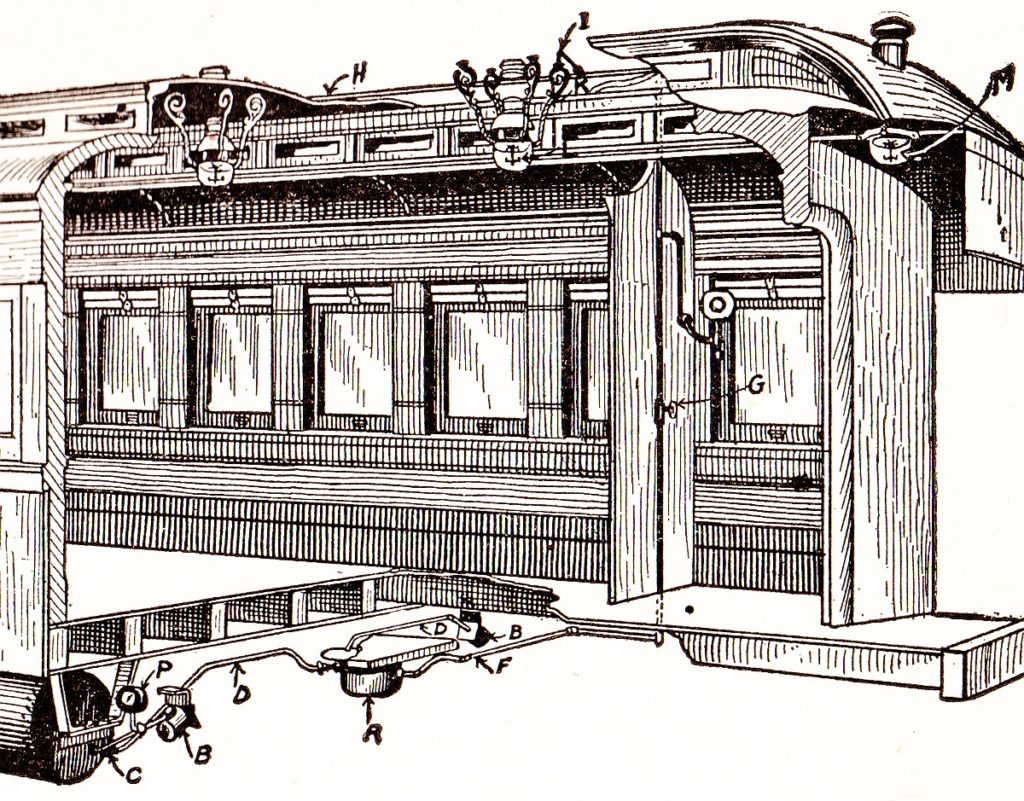
The experts theorized that the gas had leaked through the damaged pipe, essentially filling up the underside of the quay. That evening, a thick layer of ice had covered the platform, ensuring the gas was unable to dissipate.
While the ultimate cause of what ignited the gas remains unknown to this day, authorities at the time speculated that it may have been caused by a lit cigar that someone had carelessly tossed onto the quay.
Today, the Place Viger is bustling with activity and construction as it transforms into a mixed-use “urban campus”. It will include office space, apartments, restaurants, a large interior courtyard and a Hyatt Centric boutique hotel.
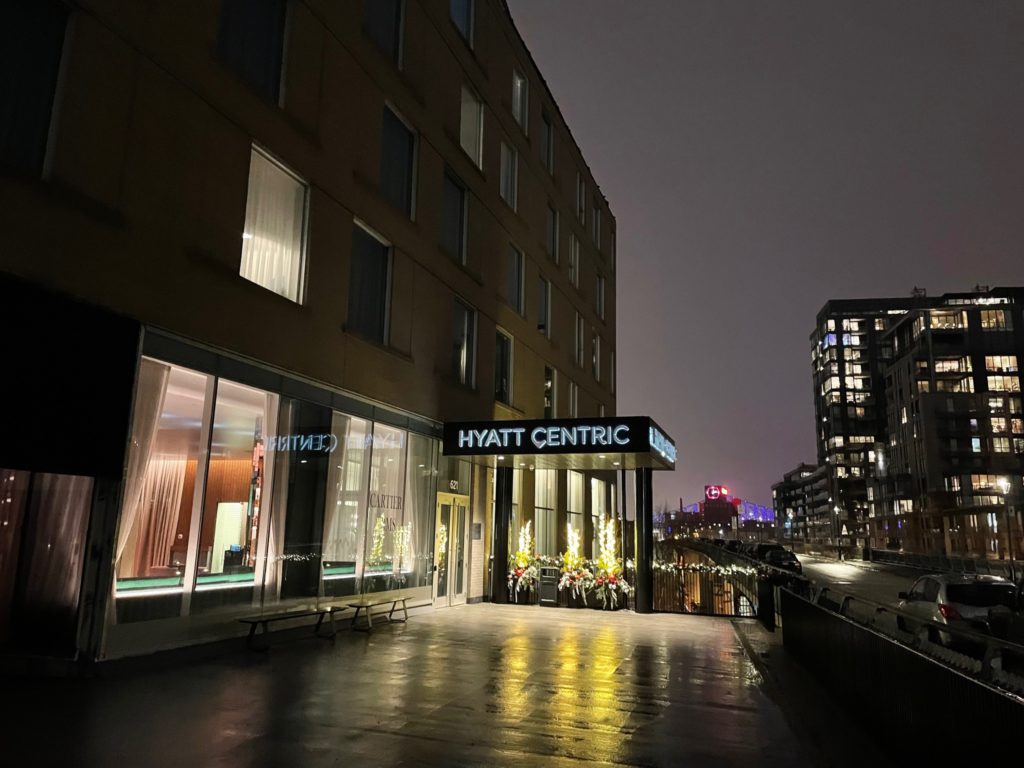
Corporate clients include Lightspeed and Novartis Pharma Canada. There is also the Espace Gare Viger, a magnificent reception venue, which is available for rent within the complex.
There are many questions about the hauntings at Place Viger. What causes the disembodied screaming of children for their parents? Are there any other ghosts? Will the newly-constructed buildings also experience paranormal activity?

The most common theory of the crying children goes back to the devastating gas explosion of 1909. With over a hundred people scattered across the train quay, children screamed out for their parents.
For example, it is unknown 15-year old M. Diedonné Paquin survived his terrible injuries or if children onboard the train lost any parents to the explosion.

Tragic events can lead to residual hauntings, and it appears that the gas explosion may have created one.
It is also undeniably strange that architect Bruce Price’s other castle-like hotels are haunted. The Chateau Frontenac in Quebec City features a mysterious “Lady in White”, whereas the Banff Springs has at least four ghosts. These include a bellhop, a bartender, a headless bagpiper and a ghostly bride.
The unfortunate bride perished on her wedding day when her dress caught fire from a poorly-placed candle on a spiral staircase. She is so popular that Canada Post featured her on a stamp in the Haunted Canada series, which ran from 2014 to 2016.
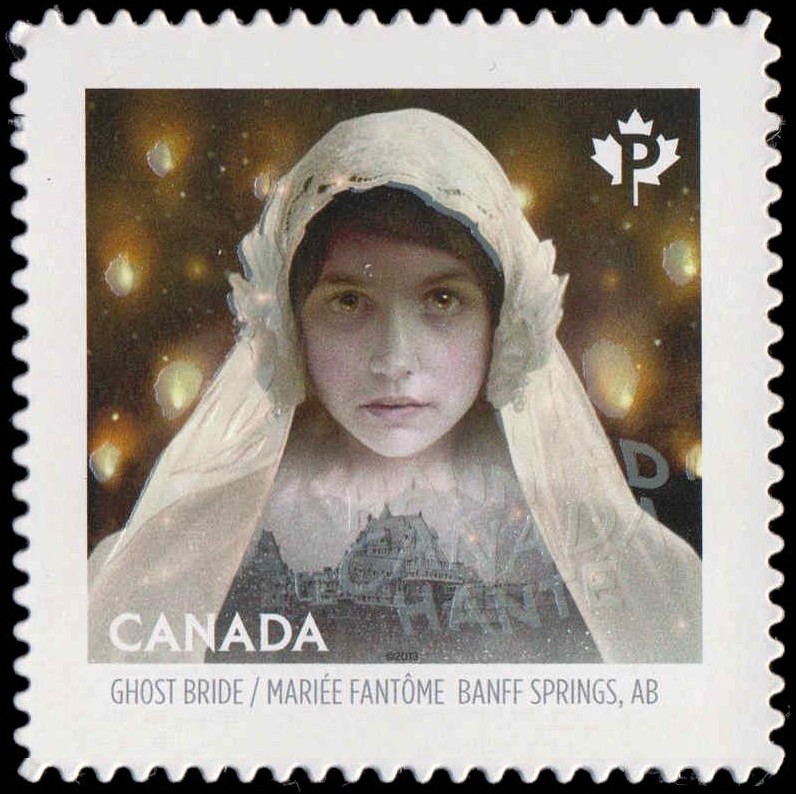
Returning to Place Viger, it is unknown at this time if there are other hauntings in the revitalized “urban campus”. Given the tragic history, it is entirely possible that other spirits are lurking about.
Only time and more investigation will tell.
Company News
Haunted Montreal is now in winter mode and with the cool temperatures, our public activities are now only indoors!
Our Haunted Pub Crawl happens every Sunday at 3 pm in English. For tours in French, these happen on the last Sunday of every month at 4 pm.
Private tours for any of our experiences (including outdoor tours) can be booked at any time based on the availability of our actors. Clients can request any date, time, language and operating tour. These tours are based on the availability of our actors and start at $190 for small groups of up to 7 people.

Email info@hauntedmontreal.com to book a private tour!
We’re also launching our newest haunted experience:

You can bring the Haunted Montreal experience to your office Christmas party, house party school or event by booking one of our Travelling Ghost Storytellers today. Hear some of the spookiest tales from our tours and our blog told by a professional actor and storyteller. You provide the venue, we provide the stories and storyteller. Find out more and then contact info@hauntedmontreal.com
Our team also releases videos every Saturday, in both languages, of ghost stories from the Haunted Montreal Blog. Hosted by Holly Rhiannon (in English) and Dr. Mab (in French), this initiative is sure to please ghost story fans!
Please like, subscribe and hit the bell!

In other news, if you want to send someone a haunted experience as a gift, you certainly can!
We are offering Haunted Montreal Gift Certificates through our website and redeemable via Eventbrite for any of our in-person or virtual events (no expiration date).

Finally, we have opened an online store for those interested in Haunted Montreal merchandise. We are selling t-shirts, magnets, sweatshirts (for those haunted fall and winter nights) and mugs with both the Haunted Montreal logo and our tour imagery.
Purchases can be ordered through our online shop.

Haunted Montreal would like to thank all of our clients who attended a ghost walk, haunted pub crawl, paranormal investigation or virtual event during the 2022 season!
If you enjoyed the experience, we encourage you to write a review on our Tripadvisor page, something that really helps Haunted Montreal to market its tours.

Lastly, if you would like to receive the Haunted Montreal Blog on the 13th of every month, please sign up to our mailing list.
Coming up on February 13: City of Montreal Archives
A massive vault sits below Montreal’s City Hall and it contains the valuable archives of the metropolis. These include 4.6 km of historical documents, dating mainly from 1796 to the present day, and around two million photographs. Researchers can browse the collection and study documents in the Conrad Archambault Consultation Room. Named after a former archivist who died in 1980, it is a quiet and scholarly place ideal for analyzing historical materials. However, there are also reports of paranormal activity within the City of Montreal Archives – and some staff members believe the ghost of Conrad Archambault is the likely culprit behind these phenomena.
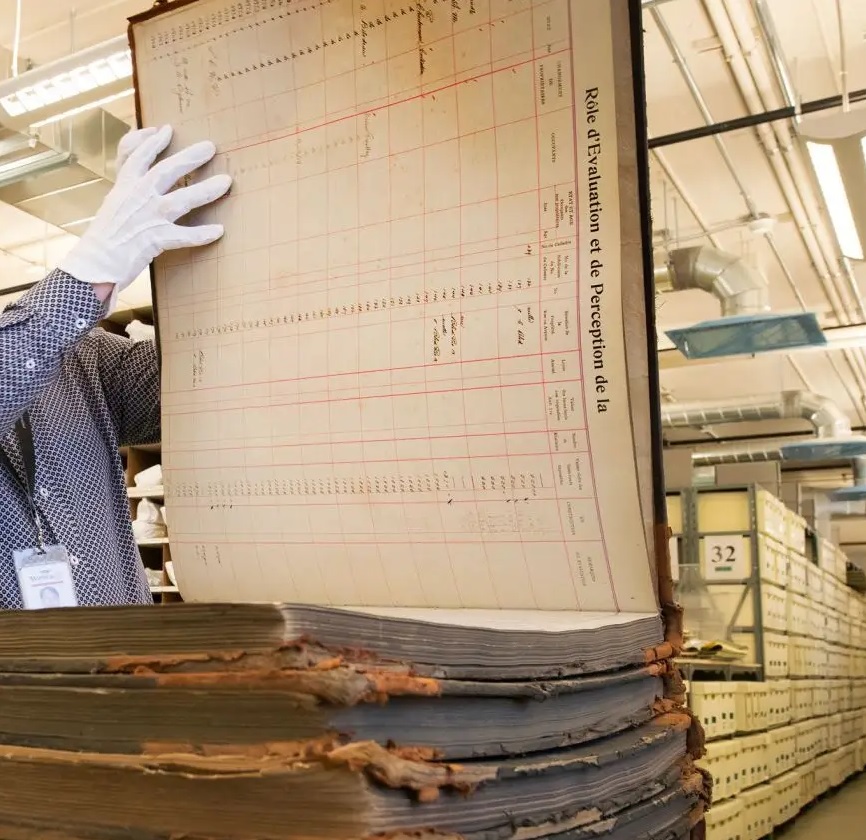
Author:
Donovan King is a postcolonial historian, teacher, tour guide and professional actor. As the founder of Haunted Montreal, he combines his skills to create the best possible Montreal ghost stories, in both writing and theatrical performance. King holds a DEC (Professional Theatre Acting, John Abbott College), BFA (Drama-in-Education, Concordia), B.Ed (History and English Teaching, McGill), MFA (Theatre Studies, University of Calgary) and ACS (Montreal Tourist Guide, Institut de tourisme et d’hôtellerie du Québec). He is also a certified Montreal Destination Specialist.
Translator (into French):
Claude Chevalot holds a master’s degree in applied linguistics from McGill University. She is a writer, editor and translator. For more than 15 years, she has devoted herself almost exclusively to literary translation and to the translation of texts on current and contemporary art.

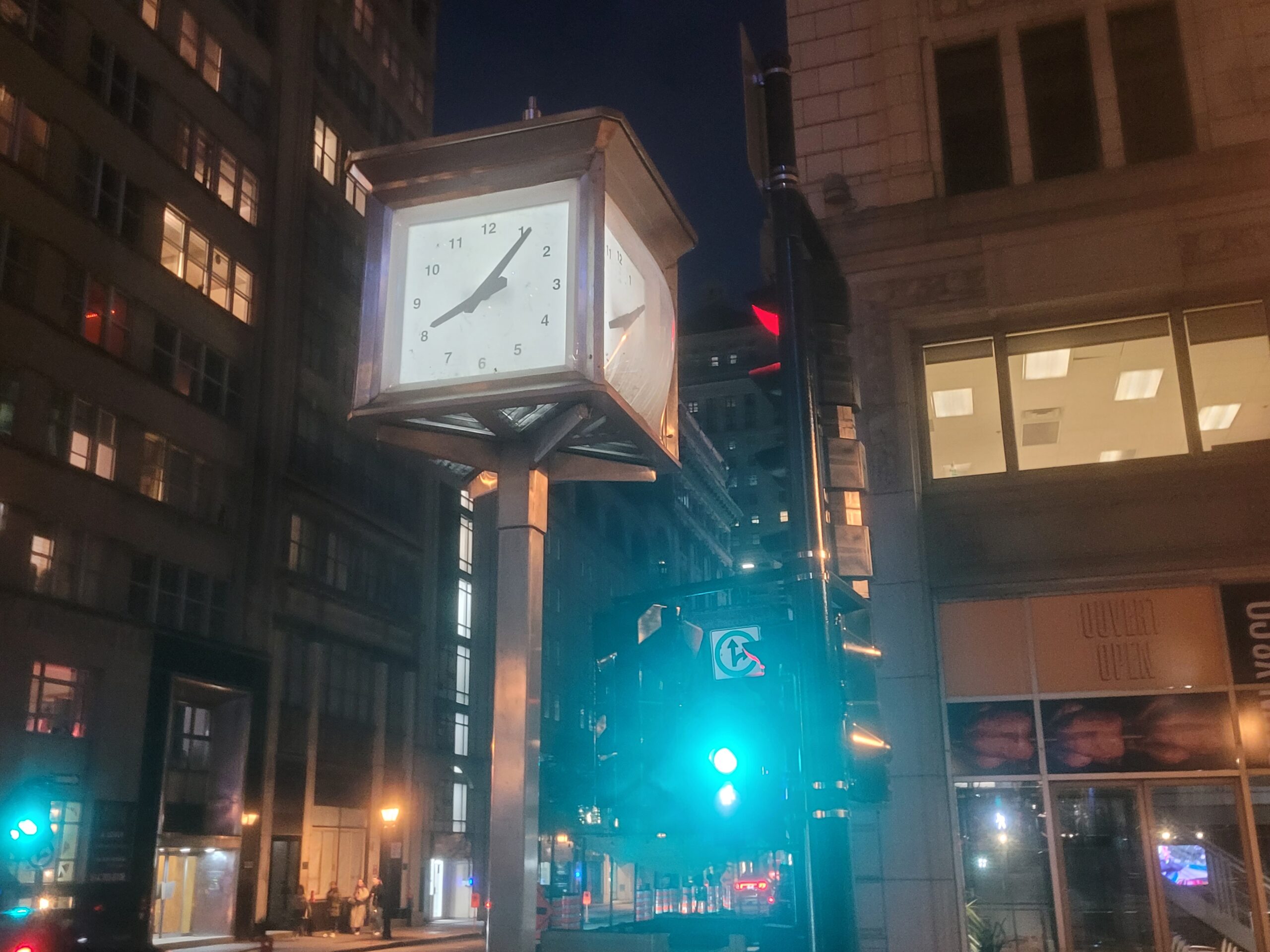


Comments (0)